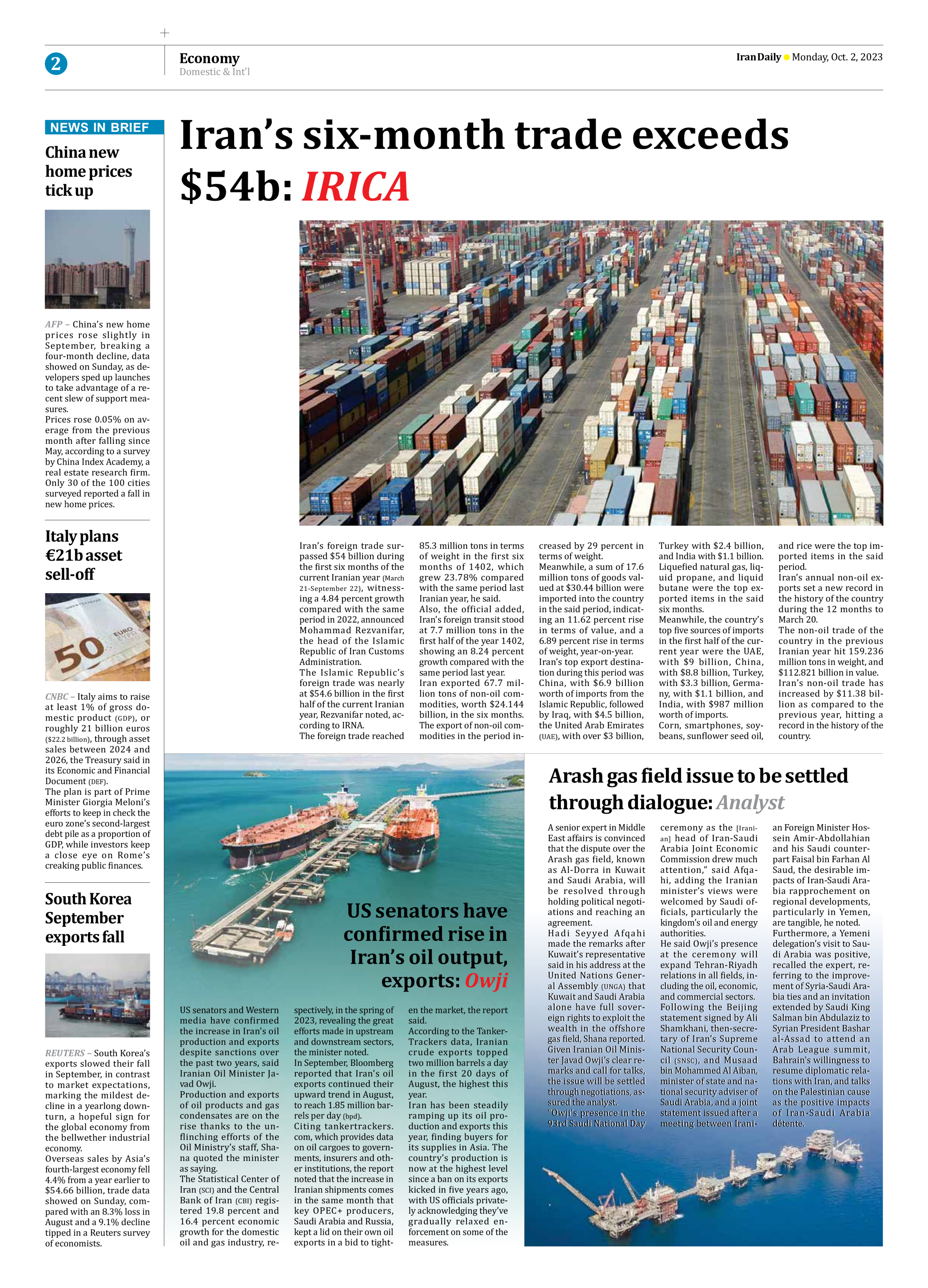
Arash gas field issue to be settled through dialogue: Analyst
A senior expert in Middle East affairs is convinced that the dispute over the Arash gas field, known as Al-Dorra in Kuwait and Saudi Arabia, will be resolved through holding political negotiations and reaching an agreement.
Hadi Seyyed Afqahi made the remarks after Kuwait’s representative said in his address at the United Nations General Assembly (UNGA) that Kuwait and Saudi Arabia alone have full sovereign rights to exploit the wealth in the offshore gas field, Shana reported.
Given Iranian Oil Minister Javad Owji’s clear remarks and call for talks, the issue will be settled through negotiations, assured the analyst.
“Owji’s presence in the 93rd Saudi National Day ceremony as the [Iranian] head of Iran-Saudi Arabia Joint Economic Commission drew much attention,” said Afqahi, adding the Iranian minister’s views were welcomed by Saudi officials, particularly the kingdom’s oil and energy authorities.
He said Owji’s presence at the ceremony will expand Tehran-Riyadh relations in all fields, including the oil, economic, and commercial sectors.
Following the Beijing statement signed by Ali Shamkhani, then-secretary of Iran’s Supreme National Security Council (SNSC), and Musaad bin Mohammed Al Aiban, minister of state and national security adviser of Saudi Arabia, and a joint statement issued after a meeting between Iranian Foreign Minister Hossein Amir-Abdollahian and his Saudi counterpart Faisal bin Farhan Al Saud, the desirable impacts of Iran-Saudi Arabia rapprochement on regional developments, particularly in Yemen, are tangible, he noted.
Furthermore, a Yemeni delegation’s visit to Saudi Arabia was positive, recalled the expert, referring to the improvement of Syria-Saudi Arabia ties and an invitation extended by Saudi King Salman bin Abdulaziz to Syrian President Bashar al-Assad to attend an Arab League summit, Bahrain’s willingness to resume diplomatic relations with Iran, and talks on the Palestinian cause as the positive impacts of Iran-Saudi Arabia détente.







